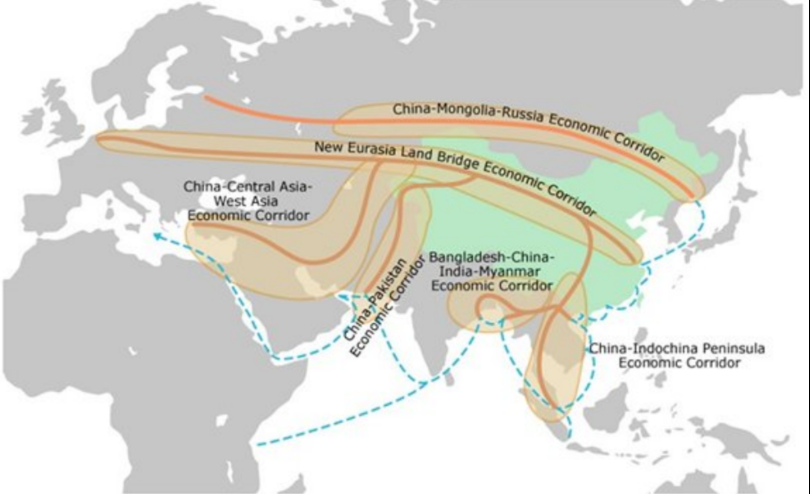
Yu Xiang, Senior Fellow, China Construction Bank Research Institute
Jun 02, 2017
The president’s overly rosy forecasts and tensions with Congress over alleged Russian meddling in last year’s US election mean a bumpy road ahead for his budget legislation. What Trump finally gets will probably a dramatically modified budget plan or an interim short-term deal that limits his administrative space.

Chen Dongxiao, President, Shanghai Institutes for International Studies
Jun 01, 2017
Shaping, coordinating, and stabilizing domestic and international expectations concerning the Belt and Road Initiative will maximize the positive effect of economic policy and minimize potential negative side effects. Four years of achievements and experience have made it clear that the initiative not only promises huge immediate and long-term business opportunities but also requires striking a balance between seizing every opportunity available and guarding against possible risks.

Stephen Roach, Senior Fellow, Yale University
May 31, 2017
The China Dream was something of a nationalist mantra, framed as a rejuvenation by which China would recapture its former position of global prominence, commensurate with its status as the world’s second largest economy. Considerable attention is devoted to the risks and opportunities of this rebalancing – and to the related consequences for sustainable Chinese development and the broader global economy.

Sampson Oppedisano, Executive Assistant to the Dean, The Milano School of International Affairs, Management and Urban Policy
May 31, 2017
One of Jared Kushner’s business, Kushner Companies, has been urging Chinese investors to invest in several of his high-end luxury projects. In exchange for this investment, investors would be eligible for the EB-5 Visa Program and could immigrate to the United States. This visa is part of federal program that does grant visas to investors but use of the program is troublesome if promoted by someone as close to the President as Jared, especially if used for personal gain.

Fu Mengzi, VP, China Institutes of Contemporary Int'l Relations
May 31, 2017
The Belt and Road Initiative proposed by President Xi Jinping in autumn 2013 has attracted extensive international attention in the past nearly four years. On May 14, Xi delivered a keynote speech at the opening ceremony of the Belt and Road Forum for International Cooperation. It was a highlight of the forum.

Tom Watkins, President and CEO of the Economic Council of Palm Beach County, FL
May 29, 2017
Governments at the national, state, and local levels have an important role to play in building economic bridges with China. In an era where the Chinese continue to seek places throughout the world to invest their new wealth, Michigan should be attempting to make America an economic magnet for such investment and job growth for the American worker.

Minxin Pei, Tom and Margot Pritzker ’72 Professor of Government , Claremont McKenna College
May 25, 2017
When US President Donald Trump withdrew the United States from the Trans-Pacific Partnership (TPP) this past January, many observers saw that decision as a boon for China. East Asia countries can no longer count on US-supplied public goods to maintain peace and deliver prosperity, they will face some tough choices.

Richard Kozul-Wright, Director, the Division on Globalization and Development Strategies
Daniel Poon, Economic Affairs Officer, the United Nations Conference on Trade and Development
May 25, 2017
China’s experiments with industrial and financial policies may end up providing emerging economies with valuable insight into how to avoid the middle-income trap. But, for a US concerned with its eroding manufacturing base, the lesson is already apparent.
Eric Harwit, Professor, University of Hawaii Asian Studies Program
May 24, 2017
In March, two leading members of the Trump administration announced that China’s ZTE Corporation would pay the largest criminal fine in U.S. sanctions history. As long as North Korea’s military program tops the U.S. foreign policy agenda with China, economic sanctions aimed at punishing Chinese corporations may take a back seat to reaching a goal of increased Chinese pressure on the North Korean regime.

Christopher A. McNally, Professor of Political Economy, Chaminade University
May 24, 2017
The Mar-a-Lago meeting between presidents Trump and Xi has started to generate concrete results, the recently announced trade agreement between the countries shows. However, the transactional approach risks leading to an impasse; it needs to be buttressed by more fundamental deals, such as the US-China Bilateral Investment Treaty.